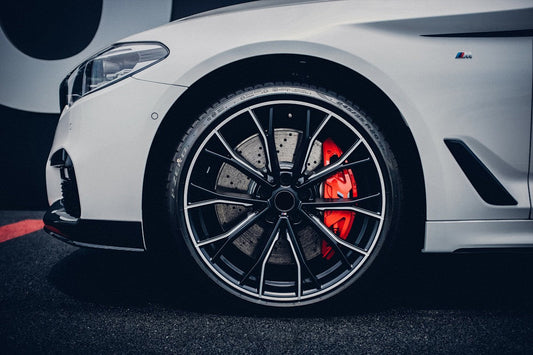
How to Choose the Right Engine Oil for Your Vehicle — TERZO Full Product Line Guide
Engine oil is one of the most critical maintenance components for vehicle owners. It not only impacts engine performance but also directly affects longevity and fuel efficiency. With countless brands and formulations available, many drivers struggle to determine "What’s the best engine oil for cars?" This guide, combined with TERZO’s full product line, will help you make informed decisions based on your vehicle type, driving habits, and environmental conditions.
Why Engine Oil Matters
Engines operate under extreme heat, pressure, and friction. Without proper lubrication, metal components grind against each other, leading to wear, carbon buildup, or even catastrophic failure. High-quality engine oil delivers five key functions:
- Lubrication & Wear Reduction: Minimizes friction between moving parts.
- Cooling: Dissipates heat generated during combustion.
- Sealing: Forms a protective film between pistons and cylinders.
- Cleaning: Removes sludge and deposits.
- Corrosion Protection: Prevents oxidation and rust.
Using substandard or incorrect oil can result in increased fuel consumption, power loss, noise, and premature engine failure. Choosing the right oil is essential for optimal performance.

How to Select the Perfect Engine Oil
-
Check SAE Viscosity
- Viscosity (e.g., 5W-30, 0W-40) indicates performance in cold and hot conditions.
- Cold climates (e.g., Northeast China, Canada): Opt for low-viscosity oils like 0W-20/0W-30 for better cold-start protection.
- Hot climates (e.g., Middle East, Southeast Asia): Use high-viscosity oils like 5W-40/10W-40 for enhanced thermal stability.
-
Follow Manufacturer Recommendations
- Always prioritize your vehicle’s manual specifications (API, ACEA, or OEM certifications). For luxury brands like BMW, Mercedes, or Audi, ensure compatibility with standards such as BMW Longlife or VW 504/507.
-
Adapt to Driving Habits
- City commutes: Low-viscosity, fuel-efficient oils (e.g., 0W-20, 5W-30).
- Long-distance driving/high-load conditions: High-temperature stability oils (e.g., 5W-40, 10W-40).
- Turbocharged engines: Use full synthetic oils with anti-deposit properties (e.g., TERZO Specialsynth Series).
-
Consider Synthetic vs. Semi-Synthetic
- Full synthetic: Superior performance in extreme temperatures, extended drain intervals, and better protection for high-performance engine.
- Semi-synthetic: Cost-effective middle ground for moderate driving condition.

TERZO Full Product Line: Engineered for Excellence
TERZO combines OEM certifications with proprietary Liquid Titanium Molybdenum technology to deliver exceptional protection and performance.
-
SynthGen Series — Economy & Durability
- Best for: Daily commuters and compact cars.
- Features: Full synthetic formula with excellent cold-flow properties, fuel efficiency, and anti-wear protection.
-
MultiPure Series — Balanced Performance
- Best for: Mid-to-high-end sedans/SUVs.
- Features: Meets ACEA C2/C3 and API SP standards, ideal for long-distance driving with extended oil change intervals.
-
Specialsynth Series — Turbocharged & Luxury Vehicles
- Best for: BMW, Mercedes, Audi, and performance turbo engines.
- Features: High-temperature stability, low SAPS formula to protect catalytic converters and DPFs.
-
SuperSynth Series — Racing-Grade Protection
- Best for: Track days, extreme climates, or heavily modified engines.
- Features: Top-tier synthetic formulation for sub-zero starts and maximum shear stability.
FAQ: Engine Oil Essential
Q1: How often should I change engine oil?
General rule: Every 8,000–10,000 km or 6–12 months. Urban driving with frequent stops may require shorter intervals. For long-life oils, intervals can extend up to 15,000 km if conditions are ideal
Q2: Can I mix different engine oil brands?
Avoid mixing formulations, as additives may clash. Stick to TERZO’s product line for consistency.
Q3: Full synthetic vs. semi-synthetic: Which is better?
Full synthetic outperforms in extreme conditions and longevity but costs more. TERZO offers both options to suit budget.
Q4: What’s the best oil for turbocharged engines?
TERZO Specialsynth Series provides thermal stability and anti-deposit properties, critical for turbocharged and high-performance engine.
Q5: Is TERZO oil compatible with diesel engines?
Yes! TERZO’s ACEA C-series oils are tailored for diesel engines, including DPF-equipped model.
Conclusion
Choosing the right engine oil hinges on viscosity, manufacturer specs, driving conditions, and oil type (full vs. semi-synthetic). TERZO’s scientifically engineered formulas ensure your engine operates at peak efficiency, whether you’re cruising city streets or tackling demanding terrains.
Trust TERZO for:
SynthGen: Cost-effective reliability
MultiPure: Balanced highway performance
Specialsynth: Turbocharged luxury protection
SuperSynth: Elite racing-grade durability
Elevate your engine’s longevity and performance with TERZO — where innovation meets precision.





